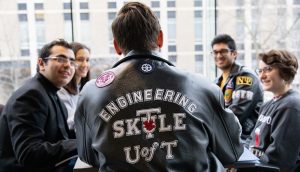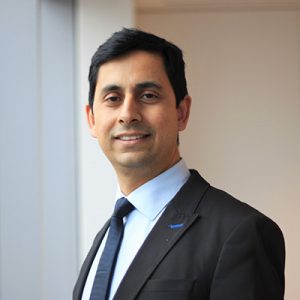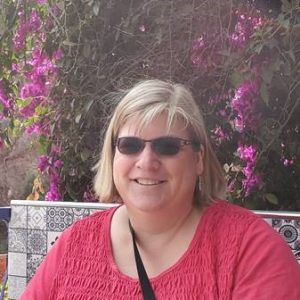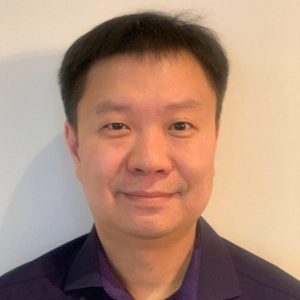From November to May, alumni Assessors go beyond grades to take a more comprehensive view of applicants for undergraduate studies
By Tyler Irving

Seven years ago, Manu Sud (ECE 0T5 + PEY) got an invitation from his alma mater that both surprised and intrigued him: would he be interested in helping to review admissions applications for undergraduate studies in engineering?
“I knew about the students’ impressive grades, but this comprehensive review would mean looking at applicants in a totally new way,” says Sud, who also holds an MBA and an LLM in addition to his engineering degree. He currently works as a Manager of Business Analytics at Toronto law firm Fasken, a job that includes hiring responsibility.
“The ability to assess candidates’ ability to collaborate with others caught my attention. I wanted to be a part of that journey.”

In the fall of 2014, Sud began training to become one of U of T Engineering’s first Alumni Applicant Assessors. The mandatory online sessions included workshops on how to identify and overcome unconscious biases. The admissions team also provided instructions on how to spot key engineering qualities in written and video submissions from applicants.
“The Alumni Applicant Assessor program enables us to look for the seeds of the skills we will help students develop once they are here,” says Rosemary Guido, Assistant Registrar, Admissions at U of T Engineering. “These include communication, problem solving, leadership, collaboration across disciplines and an ability to think globally.”
Assessors do not review applicant transcripts, and they don’t have final say over offers of admission. Instead, they leverage their experience — both inside and outside U of T Engineering — to help Admissions officers assess potential candidates by providing feedback and recommendations.
Though it is a volunteer role, becoming an Assessor is a serious commitment. Candidates must have at least five years of professional work experience, including two years of interviewing and hiring experience, and must value U of T Engineering’s commitment to diversity.
Assessors donate approximately 10 hours per month late November to May, with peak times between December and March, to the review of the submissions from applicants.
Sud, who has been involved with the program every year since its inception, says that it has changed his thinking about what makes an ideal candidate for engineering studies.
“I have been impressed with students’ reasoning behind choosing the field,” he says. “More than ever, I appreciate the diversity in thinking and the critical problem-solving styles that students have. I can see how these candidates would add value to their team and make the world a better place.”
Another long-time volunteer with the program is Anne Fraser (IndE 9T3). After graduation, Fraser briefly worked for RBC before pursuing an MBA and moving into management consulting. The field enabled her to work all over the world, and she eventually started her own practice.

“I never worked in a traditional engineering job, but U of T Engineering set me up for success and employment,” she says. “I’ve used my knowledge from engineering throughout my career.”
Fraser says that she gets a lot personally out of seeing the submissions from new applicants.
“It’s been great to listen to these young minds and their eagerness to start engineering,” she says. “It reminds me of when I was in their shoes.”
Howard Chan (ECE 9T7), another Assessor whose role as a systems engineer for a major financial institution includes responsibility for hiring, training and mentoring new team members, says he enjoys the insight into the next generation of engineers.
“It’s a really good opportunity for me to understand their expectations, thoughts, beliefs,” says Chan. “One of the things I did at U of T Engineering was arrange sporting events as part of the Chinese Engineering Students Association. I learned a lot about work-life balance, which continues to play a very important role for me and my team.”

The number of alumni Assessors has grown nearly every year since the program was launched. For the 2020–2021 application cycle, more than 85 Assessors participated. For the 2021–2022 cycle, which will begin in November, U of T Engineering is looking to retain as many as possible, and to recruit at least 50 more.
Like the potential students themselves, Assessors are located all around the world.
“When the program started, I was working Dubai, and I didn’t want that to be a reason I couldn’t participate,” says Assessor Heba Chehade (ChemE 9T9 + PEY). “Luckily, it was not an issue. Through the program, I have felt the most connected I have been to the Faculty since I graduated. It opened doors to other volunteering opportunities both within the Faculty and the University more widely.”
In addition to the assessors program, many alumni volunteer at U of T Engineering in a variety of ways: guiding student teams during design projects, giving guest lectures, or participating in the Alumni Mentorship Program. In total, more than 1,200 alumni took on volunteer roles in 2020–2021, about 20% more than the previous year.

Sud, who also serves as a mentor and as a career ambassador for U of T, says that it’s important to recognize the ways in which an engineering education can serve as ideal preparation for work in a variety of different fields. His own career, which has encompassed finance, law and the public sector, is a good example.
“I experienced so many things at U of T Engineering, from internships at IBM, GM and the National Research Council to an educational study tour to India, where we interacted with executives at several big engineering companies,” says Sud. “These gave me the interpersonal skills that are needed to survive in the corporate world, and I still use them every day.”
Chehade agrees.
“U of T Engineering was a pivotal time in my life,” she says. “I have many fond memories but what still stays with me are the lifelong friendships that I have forged. It is so inspiring to listen and read what potential students have to say. It brings me comfort to see a new generation of Engineers who are just as dedicated to the profession and the impact it can make in the world.”
